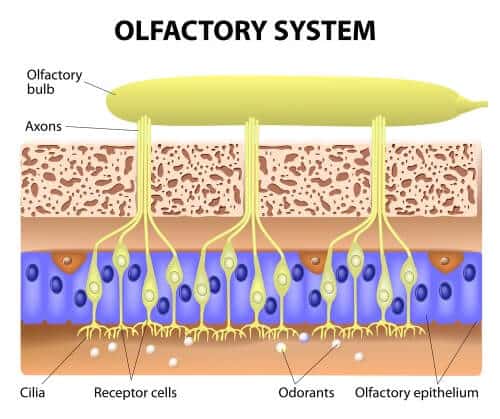Taste receptors in the nose fight against invading bacteria

Our noses are loaded with bitter taste receptors that don't help us taste or smell our meals. Since researchers at the University of Iowa came to this conclusion in 2009, researchers have been trying to understand why these receptors are in the nose. One hypothesis is that they warn us of toxic substances, but they may also have another role: helping fight infections.
Apart from normal bitter compounds, the bitter receptors in the nose also respond to chemicals used for communication between bacteria. Noam Cohen, an otolaryngologist at the University of Pennsylvania, hypothesized following this information that the receptors may identify pathogens that cause sinus infections. In a study conducted by his team in 2012, he found that bacterial chemicals trigger two antibacterial responses in the cells of the nose or upper respiratory tract: the movement of cellular bristles that removes toxic substances from the body, and the release of nitrogen monoxide, NO, which kills bacteria.
These findings could have medical applications. When Cohen recently examined genes for bitterness receptors in his patients suffering from chronic inflammation of the gout, he found that none of them was a supertaster (a person whose intensity of taste is much higher than average) even though the population has about 25% supertasters. Supertasters are particularly sensitive to bitter compounds in food. The intensity of the sense of taste in people depends on the genes they carry for the receptor known as T2R38.
Cohen believes that supertastes react aggressively towards bitter bacterial substances in the nose and are therefore resistant to infections in the nose. In contrast, in people whose sense of taste is weak, the reaction against the bacteria is weak, they thrive and an infection is created. These results show that a simple taste test can predict who is at risk of recurrent infections and needs more aggressive medical treatment.
The article was published with the permission of Scientific American Israel

One response
Short and sweet.